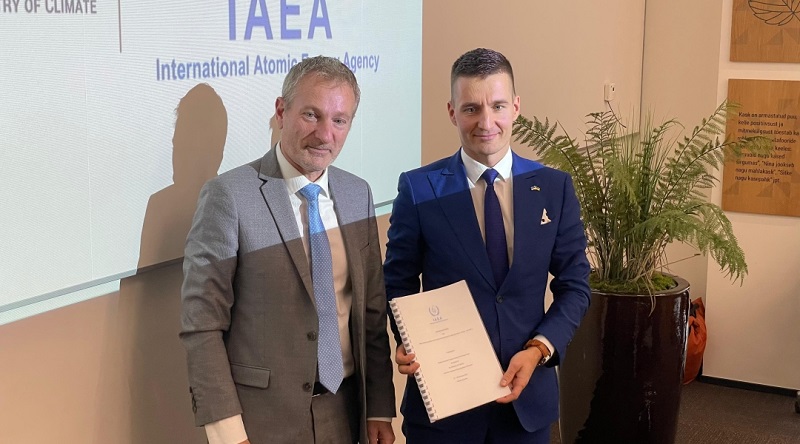Representatives of the International Atomic Energy Agency (IAEA) have completed an INIR (Integrated Infrastructure Review) in Estonia to assess Estonia's readiness for nuclear power and concluded that Estonia can continue on the path to nuclear power.
The group of experts agreed that Estonia has developed a comprehensive assessment of its nuclear infrastructure needs so that the government can decide whether to launch a nuclear power programme.
"Estonia is well-organized in its preparations for the decision to launch a nuclear power programme to support the country's just transition to decarbonization," said Eric Mathet, Chief of Operations and Mission Team Leader of the IAEA's Nuclear Infrastructure Development Division.
"During the open discussions held in recent days, we observed a strong commitment of highly motivated and competent professionals in Estonia to develop the necessary infrastructure for the nuclear programme," he said.
Mathet recommended that Estonia should set up an independent national supervisory body to oversee nuclear energy. He also recommended to start working on workforce planning and regulations to ensure that the programme does not stall.
The team said Estonia must now complete a comprehensive report to support a decision on a potential nuclear power programme, including clear timelines for major activities. The team also found that Estonia needs to finalise its plans and policies to support the next phase of the programme, and further consider the development of its legal and regulatory framework.
Based on the results of the INIR mission, the IAEA and Estonia will develop an integrated work plan to provide coordinated support in line with the further development of the country's nuclear energy programme.
Antti Tooming, Vice-Chancellor of the Ministry of Climate Change and head of the Nuclear Energy Working Group, said he welcomes the conclusions of the Working Group, which will be integrated into the full report of the Working Group. "The mission gave us confidence that we are on the right track in our nuclear considerations and provided valuable information for the next phase of follow-up activities if Estonia decides to go nuclear."
According to Tooming, the discussions were difficult, but the outcome was positive.
Fermi Energia has been planning a nuclear power plant in Estonia for the longest and most thorough period. They are currently considering the village of Letipea in the Viru-Nigula municipality and the Aidu-Liiva village area in the Lüganuse municipality as possible sites for the plant.
"We've done nearly 60 studies with a budget of five million euros over four years with several different partners to get solid information on Estonian geology, their technology choices, human resource capacity development, and developed our own organisation. All this adds to the evidence that the next steps are possible and justified," said Kalev Kallemets, head of Fermi Energia.
In case the Riigikogu decides to support the introduction of nuclear energy in 2024, the IAEA will organise a follow-up review of the implementation of the proposals and recommendations made in the current assessment for the next phase of nuclear energy introduction.
Experts who arrived last Monday assessed Estonia's preparations for a decision in principle on the introduction of nuclear energy.
https://www.err.ee/1609149151/iaea-hinnangul-saab-eesti-tuumaprogrammiga-jatkata

